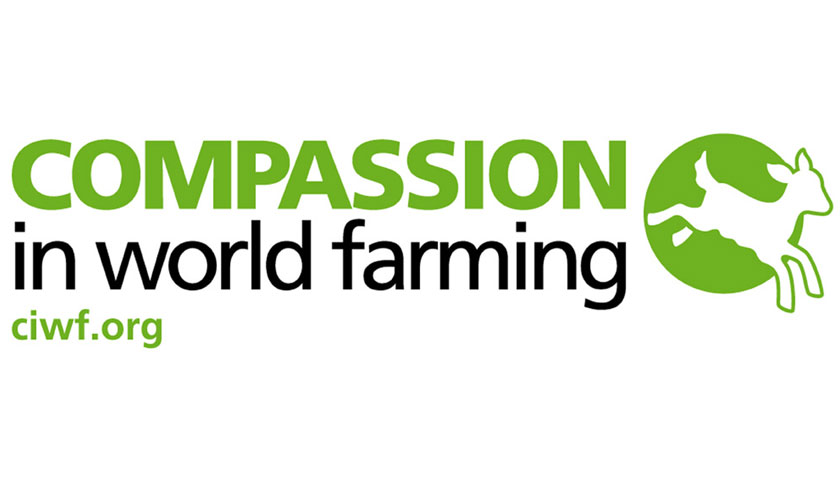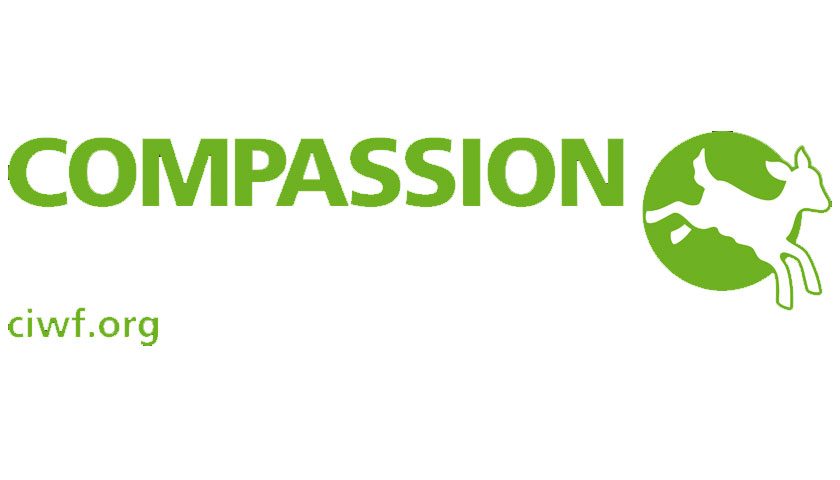Compassion in World Farming has launched the second iteration of its European EggTrack report to show the progress companies are making towards meeting their 2025 cage-free egg commitments.
In recent years, a wave of cage-free commitments from leading food businesses around the world has promised to transform the future for laying hens. Compassion actively campaigns to ban all cages in livestock farming and many companies are already on board, recognising that caged systems are unsustainable, unwanted by consumers and do not deliver a good enough quality of life for hens.
The aim of EggTrack is to celebrate those companies that have made public commitments and encourage them to report year-on-year progress towards reaching their cage-free goals, to stimulate a true market shift away from caged production. The annual progress reporting enables Compassion to offer timely help, advice and support for companies making the transition to cage-free systems.
The 2019 report presents data from 106 group-level companies across Europe, featuring leading retailers, food service and out-of-home companies, manufacturers and producers, which have been selected based on their size, the volumes of eggs they use, and their potential to impact the egg market.
EggTrack highlights the progress companies are making across not only shell or whole egg, but also their product and ingredient egg supply chains too, which are just as important but often forgotten when it comes to commitments and reporting.
The data was compiled based on publicly available information on company websites during August 2019. Key findings from this year’s report are as follows:
- 72% of companies are partially reporting progress against their commitments (i.e. reporting on at least one part of their egg supply chain, such as a particular brand, geography or type of egg.)
- 42% of companies are reporting fully against all of their commitments.
- The retail sector leads on the average progress made against commitments with an end date of 2019 or later:
- Retailers: 78% cage-free
- Manufacturers: 67% cage-free
- Food service: 54% cage-free
- The closer the commitment end date, the greater the number of companies reporting progress and the more progress made towards meeting the cage-free commitments.
- Of the commitments with 2025 end dates, 26% have been reported against, and an average 52% of eggs are now cage-free.
In general, there are good levels of progress reporting which demonstrates that food companies across Europe are really taking this issue seriously. However, the 2025 commitment deadline is looming, and equates to only four laying hen flock cycles.


Compassion’s Food Business team has stepped up its work to encourage and support companies during the process of transitioning their egg supply away from caged systems. One of its key concerns has been the development of a variety of intensive multi-tier systems, including the ‘combi-cage’ or ‘combination system’, which have been invested in by some producers, particularly the USA and Italy.
These systems do not afford hens the welfare benefits expected of true cage-free living: internal partitions or doors restricts the birds’ movement within and between tiers and hens may be locked in for long periods of time; nest boxes are not secluded and provide no comfortable material; dust bathing opportunities are limited; and head height is also restricted. These systems are unacceptable in meeting the definition of ‘cage-free’ and should not be seen as ‘fit for future’ investments.
EggTrack will be published annually to report on progress up until the 2025 cage-free commitment target and Compassion urges companies to continue their public reporting as part of their corporate responsibility programmes by:
- Providing clarity on the scope of their commitments and reporting progress on all commitments
- Extending commitments to cover ‘hidden’ product and ingredient eggs
- Working with their suppliers to ensure deadlines are met and a progressive transition to cage free production is achieved
- Ensuring that they invest in the best alternative systems, which are fit for purpose (provide a good quality of life for hens) and future-proofed (i.e. acceptable for the lifetime of investment and can successfully address emerging issues such as operating with intact beaks).
Dr Tracey Jones, Compassion’s Director of Food Business concludes: “The breadth of companies now included in EggTrack clearly signifies that those yet to make cage-free commitments are seriously falling behind the curve.
“It’s encouraging to see many companies have not only committed to cage-free eggs but have also prohibited the use of combination systems and included all forms of egg in their commitments.
“The market is undeniably moving towards a new cage-free era and I sincerely hope other companies yet to introduce cage-free policies will follow their example, and that cages for laying hens can finally be consigned to the history books.”
To read the full European EggTrack report click on this link: https://www.compassioninfoodbusiness.com/awards/good-egg-award/eggtrack/

